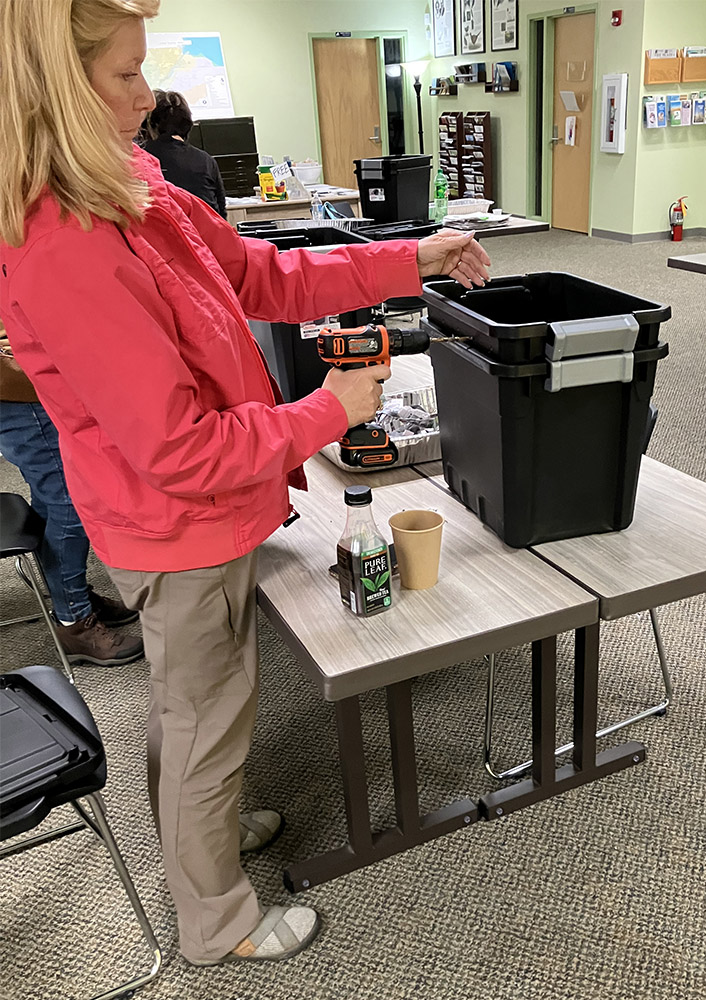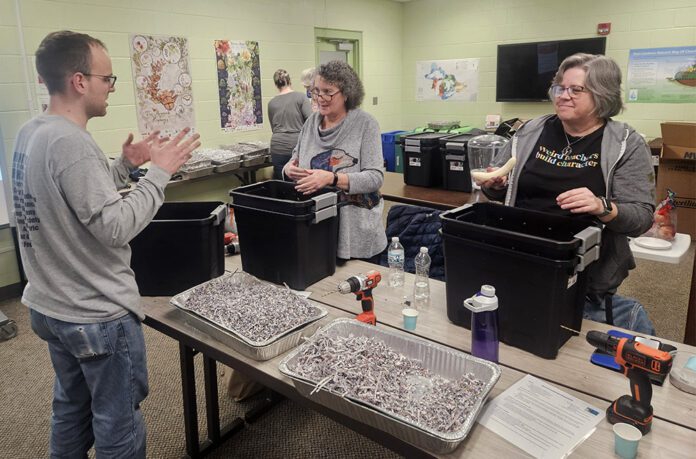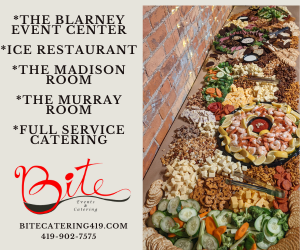A guide to doing your part in the 419
TOLEDO – With the rise in environmental awareness, many people have been searching for new sustainable practices to implement into their lives, one of them being reducing food waste by composting.
What is composting?
Composting is the process of breaking down organic waste — like food scraps, leaves and yard waste — into a nutrient-rich substance called compost. It involves the natural decomposition of materials using microorganisms such as bacteria, fungi and worms. This compost can then be used to improve soil structure, boost plant growth, and reduce the need for synthetic fertilizers.
Why should you compost?
Along with improving soil health, composting can make a much greater environmental impact. Landfills lack proper oxygen flow so that, when food waste accumulates there, it starts to creates methane, one of the leading contributors to poor air quality and the increased temperature of the planet. Human related methane emissions accounted for nearly 14 percent of all methane production on the planet from 1990-2022, according to the United States Environmental Protection Agency.
How can you start composting?
Composting can seem like a daunting task. Luckily, local organizations, like Lucas Soil and Water Conservation District (SWCD), Keeping Toledo Lucas County Beautiful and Toledo Metroparks are working together to help make food waste recycling and composting accessible and simple.
The Lucas SWCD’s sole mission is to educate the community about environmental conservation and give them the resources and tools to make their own impact. Lucas SWCD has offered two vermicomposting 101 classes that provide registrants with everything necessary to start their at-home composting bin.
“Vermicomposting is intended to be more of an inside composting option for people if they may not have a yard or don’t have a lot of food waste, and it utilizes the power of worms to break down that material and create compost,” said Jessica Grisier, Lucas SWCD’s communication and outreach coordinator.
Grisier also shared that Lucas SWCD sells other composting tools, such as a cold composting bin and a food scrap pail. Lucas SWCD sells these in stock all year long; the composters cost $62.50 and the food scrap bin costs $25.

If you run into any issues with starting or maintaining your compost bin, Grisier encourages residents to come into their office, view their website page, send them an email, give them a call or schedule a site visit. Once you are connected, their educated team will be ready to assist you with your conservation journey.
If having your own composting bin doesn’t interest you, there are other ways to practice organics recycling. In 2023, Keeping Toledo Lucas County Beautiful, City of Toledo and Toledo Metroparks partnered with GoZero to create food waste drop-off locations. The three drop off locations are Swan Creek Metropark, Toledo Botanical Gardens and Glass City Metropark. Once those food scraps are collected, they are then transported to GoZero’s composting facility in Wauseon.
“They provide bins very similar to what you would have for your garbage or recycling, and they come through and pick it up in what pretty much looks like a big garage truck; they take it out to their facility to be composted,” said KTLCB’s executive director Adam Cassi.
“It makes composting a lot easier because you don’t have to sort through as much,” shared Cassi. In total, these food waste bins have collected 67,350 pounds of food waste in the past year.
He also shared that Go Zero is an industrial composter, so they can break down materials that don’t typically break down in a traditional compost bin. Materials, such as meat, dairy, bone and BPI compostable plastics can be broken down quickly using an industrial composter.
“Composting doesn’t have to be hard,” Cassi added. “Now we are coaching people to leave their leaves in their backyard, not rake them up and just let them sit. It’s better for insect life, biodiversity and small mammals. A lot of people complain that they don’t see as many butterflies and lighting bugs as they used to, and one reason is because we don’t leave our leaves; a lot of these insects need to live and complete their life cycle. Also they will decompose and become fertilizer for your yards. That’s composting.”
Cassi added that Go Zero has been aiding in food waste recycling for quite some time “There are a lot of business and restaurants that use them for composting, like Owens Corning, Dana and Mercy St. Vincent.”
Cassi is looking forward to expanding KTLCB’s food waste drop-off initiative by adding new locations in the near further.
Keeping Toledo Lucas County focuses on waste reduction and recycling. Their other recycling efforts are listed here.
Lucas SWCD is located at 3350 Hill Ave., Suite K, and their office is open 8 a.m. to 4:30 p.m.





















